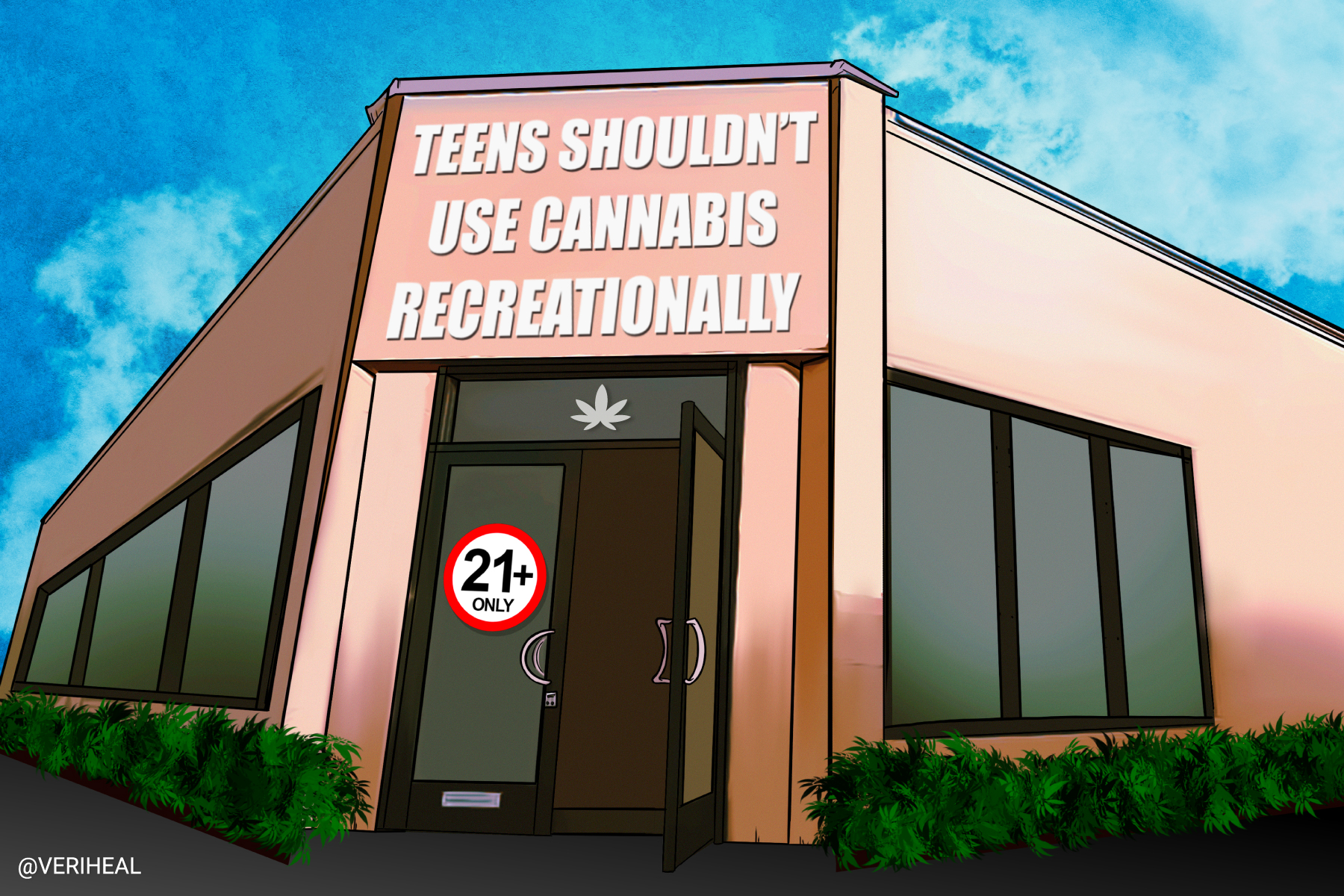A new study hypothesized that “frequent and dependent cannabis use in youth would be associated with Intelligence Quotient (IQ) decline”. However, one needs to determine the legitimacy of such a study to ensure that the study is not motivated by anti-cannabis agendas. In order to assess the legitimacy, let’s have a look at what the study has to say and then compare it to other research and studies.
This Study Suggests That Teens Shouldn’t Use Cannabis
The study was published by Cambridge University Press and assessed the “intelligence quotient decline following frequent or dependent cannabis use in youth”. The study begins by explaining that cannabis use in adolescence is frequently associated with a decline in mental functioning, with increased risks of mood disorders, self-harm, and suicidality.
Teen Brains Are Not Fully Developed Which Leaves Them at Risk
They go on to explain that the brains of adolescents are particularly susceptible to harm since their brains are still developing. The aim of the study “is to quantitatively synthesize the available literature examining the longitudinal association between frequent/dependent cannabis use and IQ change from pre-exposure baseline in young people”. The team made use of a search strategy of potential articles in order to do a systematic review and meta-analysis.
The researchers identified 2,875 papers for screening and then identified 33 papers that had full-text for screening. The results of their systematic review and meta-analysis found that there was a significant correlation between frequent cannabis use and changes in IQ. They found a consistent 1.98 point decline in IQ in terms of full-scale IQ, while verbal IQ declined by 2.94 points while performance IQ revealed no evidence of change.
The team explained that they also made use of other research available on Embase, PubMed, and PsychInfo to support their research, which is evident. The team also requested information from authors of studies and they made use of seven cohorts (similar) studies. The team then assessed the quality of the studies they included to ensure their own study’s legitimacy. They scored most of the students moderate to excellent quality. All of the studies used for this study revealed a negative relationship between adolescent use and IQ, especially as they grow older than 18 years old.
The material made use by the team of researchers on this study includes work by:
Of Course, More Research is Still Needed
To better understand the legitimacy of the results from the study, let’s have a look at additional research.
Dr. Karen Wagner published an article in Psychiatric Times and explained why there are reasons for concern of adolescent cannabis use. She explains that clinicians are “often faced with a depressed, anxious, or suicidal adolescent who uses cannabis”. Dr. Wagner made use of a study by Morin and his team which randomly assessed over a 4 year period and found that their cannabis and alcohol use was associated with impairment in their cognitive function, which includes memory recall and working memory.
Additionally, researchers Wayne Hall, Janni Leung, and Michael Lynskey, found that frequent cannabis use in adolescents, particularly if the tetrahydrocannabinol (THC) content was high, resulted in a decline in cognitive function- which correlates with a decline in IQ. Meanwhile, Helen Shen consulted with Neuroscientist Kuei Y. Tseng, who explained that the matter is “not black and white” and that “until and unless more is known about the long-term impact, the safest choice for pregnant women and adolescents is not to use marijuana”.
Supporting Tseng’s statement is neuroscientist Jodi Gilman from the Harvard Medical School. Gilman explains that “we still don’t have a handle on how THC affects the adolescent brain. There is a lot of evidence pointing toward negative outcomes, but more research needs to be done”. Shen goes on to explain that while many results are projecting negative outcomes, there are influences, or underlying conditions, that may not be taken into account such as socioeconomic status and history of family mental health.
Perhaps High THC Potency is the Culprit
Perhaps the problem with cannabis consumption does not lie in the cannabis itself but is rather connected to cannabinoids, particularly THC potency. This is also a logical suspect for the decline in IQ and increased risks of mood disorders since high-potency cannabis has already come under scrutiny for ill effects.
In light of supporting studies and the additional studies found as well as the study’s declaration of no competing interests, it is safe to say that the results of this study are legitimate and that ultimately more research needs to be done in order to eliminate making hypotheses and to provide more certain data. Even though there are instances where minors legitimately need medical cannabis, teens shouldn’t use cannabis unless approved by a physician and should certainly avoid recreational use.
Author, Share & Comments
















